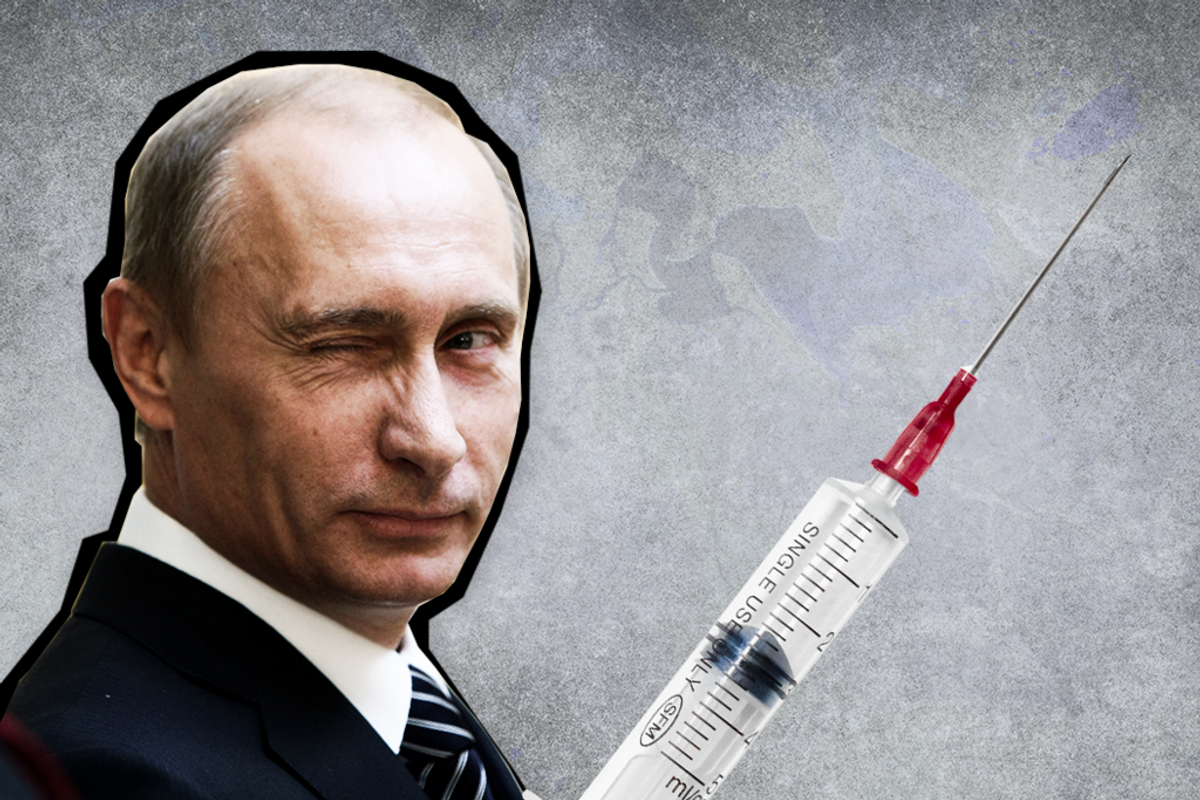"Go ahead, take it," President Putin says to you.
"Take what?" you ask.
"This Covid vaccine," he continues, turning a small syringe over in his hands. "It's safe. Trust me. We… tested it on my daughter."
Would you do it? Russian President Vladimir Putin is betting that a lot of people will say yes. On Tuesday he announced that Russia has become the first country to register a COVID-19 vaccine, and that mass vaccinations will begin there in October.
The catch is: no one knows if it really works. In order to win the vaccine race, the Gamaleya institute in Moscow never ran what scientists call a "Phase III Trial": the critical final round of testing in which medications are given to thousands of people to make sure that they actually deliver immunity without intolerable side effects.
Globally, there are just eight vaccines at Phase III right now, and Russia says it will join them this week. But up until now the Russian vaccine has been tested on just 76 people. Among them are the Russian scientists who developed the vaccine -- they injected themselves with it and seemed pleased with the results. And one of Putin's daughters took it as well. After a day or so of fever, her dad said, she was fine.
Cutting corners to win the global vaccine race isn't without risk, so what are the pros and cons here for Putin?
Well, if the vaccine is effective, it would deliver a few huge wins.
A PR coup. The coronavirus pandemic is the biggest global crisis since World War Two, and it won't truly end until there's a vaccine. Russian state TV has been hyping this for months, and getting there first would be a huge feather in Putin's cap: it's no accident that the vaccine was named Sputnik V, an homage to the time that the USSR beat the USA to put the world's first satellite in orbit.
A public health victory. A successful vaccine would enable economic and social life to get back to normal in Russia faster than anywhere else. That would be a huge help for Putin, whose approval ratings have touched historic lows during the pandemic.
Soft power in a syringe. If other countries line up to get the Russian vaccine rather than wait for the other Phase III trials around the world to finish, it would give Russia tremendous influence over economies and societies around the world. Moscow says at least 20 countries have already expressed interest. If the key to returning to (something like) normalcy says "Made in Russia" on it, people won't forget.
Lastly, vaccine is spelled M-O-N-E-Y. Russia says there's already demand for a billion doses. Whoever manufactures those billion doses will be raking in big cash. And permission to hold that lucrative rake will, as ever, come directly from Putin himself – a company this important will be controlled by people very close to the Russian president.
What if the vaccine doesn't work? Cases could surge again as ineffectively-vaccinated people begin socializing and working as normal again. Negative side effects could be widespread. The logistics of delivering it at home and abroad could seize up.
If any of these things happens on a large scale, it will be hard to cover up, and Russia would take a hit in all four of the areas above, particularly if competing vaccines elsewhere in the world emerge from Phase III trials soon.
But given the upsides, Putin is probably betting that the vaccine is good enough to make any negative news of that kind easy to contain, deny, or spin.
He's also waiting for an answer to his question to you: what's it gonna be — would you roll up your sleeve for Sputnik V?






